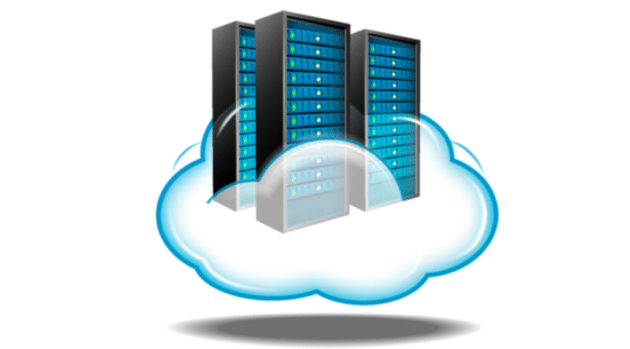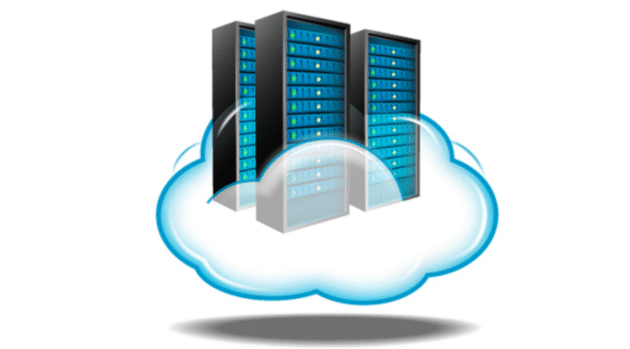Backup Server Cloud – In today’s digital age, data is one of the most valuable assets for individuals and businesses alike. Whether it’s customer information, financial records, or critical project files, losing data can have devastating consequences. This is where a backup server cloud solution becomes indispensable. With its ability to securely store and recover data, cloud backup servers have become a cornerstone of modern IT strategies. This article delves into the concept of cloud backup servers, their benefits, key features, and tips for choosing the best solution for your needs.

What is a Cloud Backup Server?
A cloud backup server is a remote platform that allows users to store copies of their data on secure, off-site servers. Unlike traditional backup methods, cloud backups utilize the internet to transmit and store data in virtualized servers managed by third-party providers.
These backups ensure that your data remains safe and recoverable even in the event of hardware failure, cyberattacks, or natural disasters.
Why is Cloud Backup Important?
The importance of cloud backup servers cannot be overstated. Here are some reasons why businesses and individuals rely on these solutions:
- Protection Against Data Loss
Accidental deletions, hardware malfunctions, or ransomware attacks can lead to irreversible data loss. Cloud backups provide a fail-safe mechanism to restore lost files.
- Business Continuity
For businesses, downtime due to data loss can lead to significant financial and reputational damage. A backup server cloud ensures quick recovery, minimizing disruptions.
- Scalability
Cloud backup solutions can accommodate growing data needs without requiring additional physical storage.
- Remote Accessibility
Data stored in the cloud can be accessed from anywhere, providing an internet connection, making it ideal for remote teams and global operations.
- Cost Efficiency
Traditional backup systems often involve high upfront costs for hardware and maintenance. Cloud backup services operate on subscription models, making them cost-effective.
Key Features of a Reliable Cloud Backup Server
When evaluating cloud backup solutions, consider the following essential features:
- Automatic Backup Scheduling
The best cloud backup servers allow users to schedule regular backups, ensuring data is always up-to-date without manual intervention.
- Data Encryption
Security is paramount. Look for providers offering end-to-end encryption to protect your data from unauthorized access.
- Versioning
This feature retains multiple versions of your files, enabling you to restore a specific version in case of accidental changes or corruption.
- Disaster Recovery
Top-tier cloud backup services provide comprehensive disaster recovery plans, including fast data restoration to resume operations swiftly.
- Scalability
The ability to quickly scale storage space based on your evolving needs is a hallmark of a robust cloud backup solution.
- User-Friendly Interface
A straightforward and intuitive interface makes setting up, managing, and monitoring backups easier.
- Multi-Platform Support
Ensure the solution supports backups for various devices and operating systems, including Windows, macOS, Android, and iOS.
- Customer Support
24/7 customer support is essential for addressing technical issues promptly.
Top Cloud Backup Server Providers in 2024
Here’s a look at some of the best cloud backup server providers and what makes them exceptional:
- Backblaze
Backblaze is renowned for its simplicity and affordability. It’s an excellent choice for individuals and small businesses looking for reliable backups.
- Key Features: Unlimited backup for a flat fee, fast restore options, and versioning up to 30 days.
- Ideal For: Budget-conscious users.
- Acronis Cyber Protect
Acronis combines backup solutions with cybersecurity, offering a robust all-in-one platform.
- Key Features: AI-based ransomware protection, full-disk image backup, and hybrid cloud options.
- Ideal For: Businesses needing advanced security features.
- IDrive
IDrive is a versatile solution offering comprehensive features for personal and business use.
- Key Features: Continuous data syncing, backup for unlimited devices, and file sharing.
- Ideal For: Users with multiple devices to back up.
- Carbonite
Carbonite specializes in automatic cloud backups for small businesses and individuals.
- Key Features: Automatic file backups, data recovery, and remote access.
- Ideal For: Small businesses prioritizing ease of use.
- Microsoft Azure Backup
For enterprises already using Microsoft’s ecosystem, Azure Backup is an excellent choice.
- Key Features: Integration with Azure services, high scalability, and long-term data retention.
- Ideal For: Enterprises using Microsoft solutions.
- Google Workspace Backup
Google’s cloud backup solution integrates seamlessly with Google Workspace tools.
- Key Features: Automated backups, granular file restoration, and multi-region redundancy.
- Ideal For: Organizations leveraging Google Workspace.
Benefits of Using a Cloud Backup Server
Using a cloud backup server offers several distinct advantages:
- Enhanced Security
Most providers employ advanced encryption methods and multi-factor authentication to ensure data safety.
- Reduced Operational Costs
There’s no need to invest in physical hardware or dedicate resources for maintenance, making cloud backups cost-effective.
- Accessibility and Flexibility
Data can be accessed anytime, anywhere, enabling seamless collaboration and remote work.
- Fast Recovery
In data loss, cloud backups allow for quick restoration, minimizing downtime.
- Compliance
Many cloud backup solutions comply with industry regulations, such as GDPR and HIPAA, ensuring legal and ethical data management.
How to Choose the Right Cloud Backup Server
Selecting the correct cloud backup server requires careful consideration of your specific needs. Here are some steps to guide you:
- Assess Your Data Needs
Identify the type and volume of data you need to back up. This will help determine the required storage capacity.
- Define Your Budget
Consider how much you’ll spend on a backup solution and choose a provider that offers value for money.
- Prioritize Security
Ensure the provider uses robust encryption standards and complies with relevant security certifications.
- Check Backup Speed
Backup and restore speeds are critical, especially for businesses handling large volumes of data.
- Evaluate Support Options
Opt for a provider with responsive customer support to address any issues promptly.
- Test the Service
Many providers offer free trials or money-back guarantees. Use these to evaluate the platform’s performance.
Future Trends in Cloud Backup Solutions
The world of cloud backups continues to evolve, with new trends shaping its future:
- Artificial Intelligence (AI)
AI-powered backups can predict potential issues, optimize storage, and automate recovery processes.
- Edge Computing Integration
Storing data closer to the source improves backup speed and reduces latency.
- Blockchain for Data Security
Blockchain technology enhances the security and integrity of backup data by creating immutable records.
- Green Backup Solutions
Sustainability is becoming a priority, with providers focusing on energy-efficient data centers.
- Hybrid Backup Models
Combining on-premise and cloud backups offers the best of both worlds, providing flexibility and enhanced security.
Conclusion
A backup server cloud is no longer a luxury—it’s necessary in today’s data-driven world. With its ability to safeguard data, ensure business continuity, and provide peace of mind, cloud backup solutions are invaluable for individuals and organizations.
When choosing a cloud backup provider, consider your data needs, budget, and desired features. Whether protecting personal files or managing critical business information, investing in a reliable cloud backup solution is a step toward securing your digital future.

